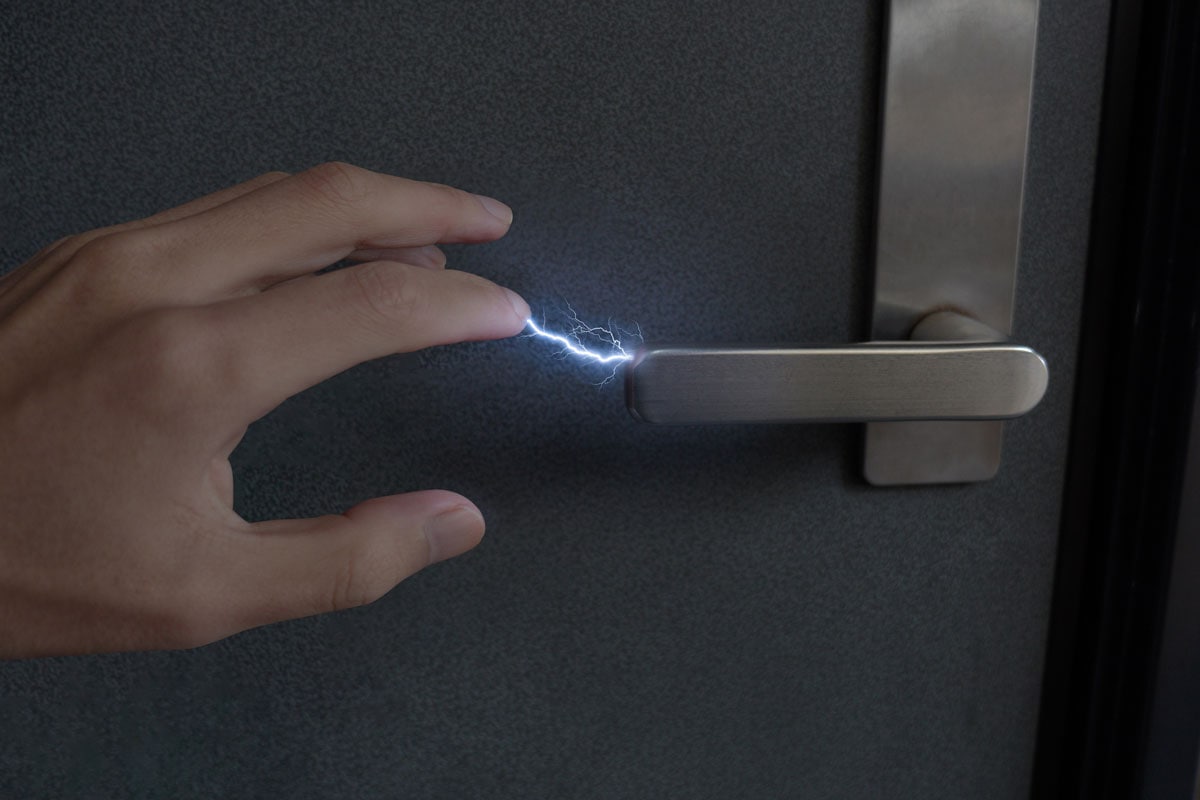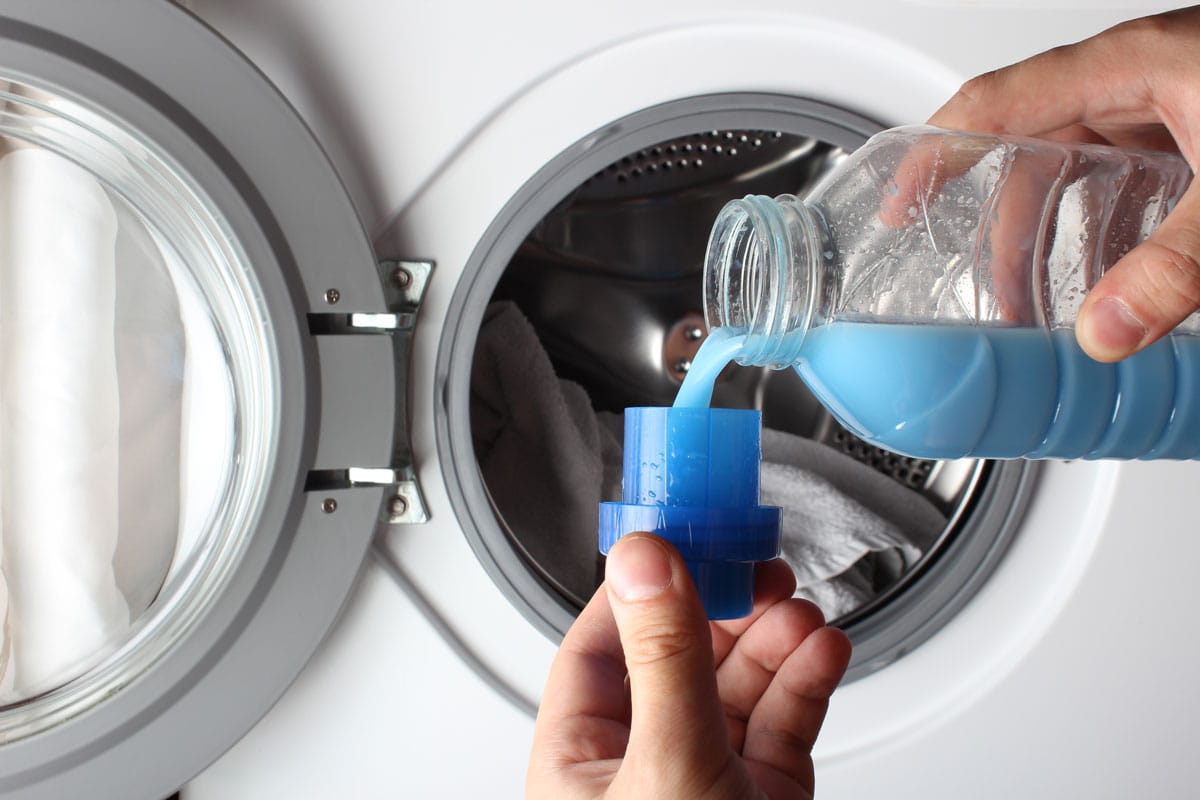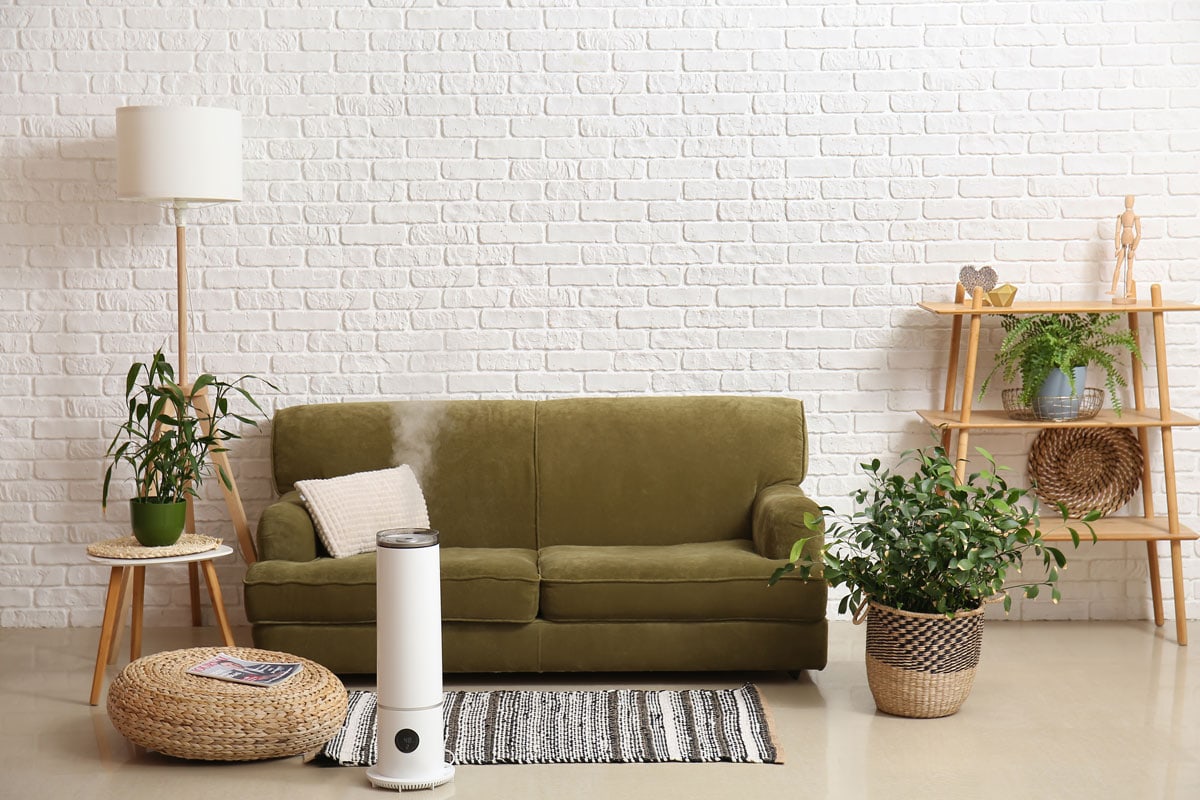Have you ever been startled by an unexpected doorknob zap in your bedroom? If you answered yes, then static electricity was probably to blame. You may be wondering what the root cause of static electricity is. We've researched this question and provide the answers you need in this post.
Winter months are typically considerably worse for static electricity. Since the air is dryer and less conducive to electricity in the winter, it occurs more frequently in your home. Electrons find it challenging to move through dry air, which can lead to an accumulation of electric charges that attach to your surroundings.
Static electricity can also accumulate to levels that can be harmful, so it's crucial to prevent it from getting out of control. The good news is that you may avoid these occurrences by lowering the static electricity in your home. Continue reading to learn a few easy techniques for eliminating static electricity.

Static Electricity In A Room
The accumulation of an electrical charge on another object's surface is known as static. A static electrical discharge may occasionally serve as the spark that ignites a fire or sets off an explosion. Static electricity is common in our daily lives, but there are ways to control it.
An imbalance of electric charges within the material's surface may result in static electricity. When two materials are rubbing against each other or moving apart, electric charges frequently build up.
In the winter, when the air is particularly dry, static shock occurs more frequently because cold weather and extremely dry air boost static electricity. Air moisture is conductive and aids in controlling electrical charges. The static then adheres to many surfaces, including your bedding, clothes, hair, and clothing.
Each one of us is a conductor when it comes to static electricity. When you walk on a rug, your body takes up free electrons, generating static electricity. When you touch a metal conductor, like a door handle carrying additional electrons, the excess electrons flow into the metal and receive a static shock.

How Do I Get Rid Of Static?
Static electricity is frequently brought on by dry air, synthetic materials, and carpeting. Though it typically only results in small shocks, it can occasionally cause harm. There are a few straightforward actions you can take to avoid uncomfortable shocks from static electricity:
1. Humidifiers

With nature's abundance of electrons, you might be unable to avoid shocks altogether. However, you can lower their intensity and frequency. Keeping the correct humidity level in your room is crucial to preventing static electricity because dry air is a key contributor to the problem. It would be best if you began your fight against static electricity by introducing water into the air because dry air is a significant factor in why static becomes a problem.
An easy, no-stress way to deal with static is to use a humidifier. It can successfully reduce random shocks, static cling, and static in hair. One advantage of humidifiers is that you may use them day and night, which contributes to maintaining a steady humidity level in your home. Keep your room's relative humidity between 30 and 40 percent for optimum anti-static results.
Click here to see this AquaOasis Cool Mist Humidifier on Amazon.
2. Fabric Softener

The fabric in your carpet, upholstery, and clothing is a significant generator of static electricity. Too much static in your clothing makes it difficult to fold and frequently causes it to stick to your body when you wear it.
You can lessen the presence of static by using a fabric softener. By adding a small amount of fabric softener to a load of laundry, you can give the garments in your washing machine the moisture they require to get through the drying process without accumulating static electricity.
Click here to see this Snuggle liquid fabric softener on Amazon.
3. Anti-Static Spray
The likelihood of static in your home is higher if you have carpet rather than wood floors. Anti-static agents can be applied to items that are especially susceptible to static discharge. A spray like the one below can lessen the possibility of items accumulating a charge if static is a significant issue.
Click here to see this Downy static remover on Amazon.
4. Stay Moisturized

One strategy to lessen the effects of static shock is to keep your skin well-hydrated. As a barrier, the lotion will stop static electricity from accumulating.
Apply lotion to your body when you get out of the shower and before getting dressed. The cream gives your body the moisture it needs to expel static from your clothing and any furnishings you use.
Click here to see this Jergens body and hand moisturizer on Amazon.
5. Clean The Floor

Maintaining clean floors by vacuuming, sweeping, and mopping can also prevent static electricity by lowering the amount of dust.
6. Avoid Rubber-Soled Shoes
Avoid wearing shoes with rubber soles if possible. Rubber is an excellent insulator, allowing static electricity to accumulate on your body. Polyester and nylon are both synthetic fabrics that cause a static buildup. Wear natural fibers like cotton socks, clothes, and shoes with leather soles.
7. Indoor Plants

Did you know plants may improve your living space while reducing static electricity in the air? As strange as it may seem, indoor plants are excellent humidifiers. With indoor plants, you can prevent static electricity by increasing the humidity in the air.
Can Static Electricity Start A Fire?
Static electricity cannot start a fire or an explosion unless specific criteria are met. A substantial charge must first accumulate.
A material can accumulate a significant charge from static electricity in various situations. This can lead to a fire, especially in places with a high risk of inflammation, where explosive vapors are present and ready to ignite.
Second, there must be fuel and oxygen, which will influence the magnitude of the ensuing fire. Finally, the accumulated static electricity needs to be released. This can be highly intense and a frequent source of fire ignition.
Can Static Electricity Affect The Heart?
These electrostatic discharges pose little harm. Most of the time, they are merely an uncomfortable annoyance. The main danger from a shock is the possibility of unintentional damage.
Touching a doorknob or other item with static electricity can cause your heart to beat differently. This is because the static electricity shocks the heart and may interfere with its ability to beat.
The most hazardous aspect of electricity to the human body is the current. Depending on the individual, even 0.2 Amps can be lethal due to how it affects the heart.
Does Static Electricity Affect Sleep?
Static electricity may cause sleep disruption and unfavorable side effects like tension or worry. For instance, if your mattress is comprised of materials like polyester or nylon, this can also affect how well you sleep.
Is Static Electricity Bad?
The good news is that you cannot be seriously harmed by static electricity. But it is better to avoid static electricity, because it can affect your health, and there is also a possibility of starting a fire.
Does The Air Conditioner Cause Static Electricity Build-up?
Although the static season is typically limited to the dry winter months, static shocks can occur in an air-conditioned space. In cold conditions, when dealing with electronics, the shocks can become frequent, uncomfortable, and even dangerous if a jolt destroys an electronic component.
Why Does My Blanket Sparks At Night?
Large amounts of electrical charge are rapidly separated when the blanket rubs against your hair. The charges build up inside the blanket and on your body. The air degrades when the charges reach a crucial voltage threshold, and a spark results.
In Closing

Controlling static electricity is necessary, although it does have some favorable aspects. If you experience shocks frequently, take action to eliminate static electricity from your body and guard against future shocks.
Avoid walking on your carpet in rubber-soled shoes, as these materials, along with wool, polyester, and other synthetic fabrics, contribute to static electricity. Also, try not to layer your clothing. Wearing extra layers can increase your risk of shocking yourself as the textiles rub against one another.
Contact an experienced electrician for more information on reducing static electricity in your house.
If you found this article helpful, you should check out these related posts:




